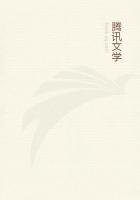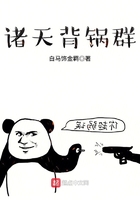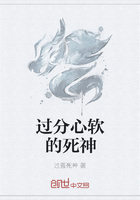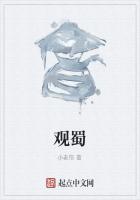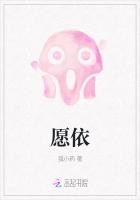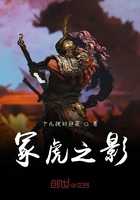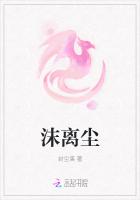Persistently and furiously, at half-past two o'clock of an August morning, Sparicio rang Dr. La Brierre's night-bell. He had fifty dollars in his pocket, and a letter to deliver. He was to earn another fifty dollars--deposited in Feliu's hands,--by bringing the Doctor to Viosca's Point. He had risked his life for that money,--and was terribly in earnest.
Julien descended in his under-clothing, and opened the letter by the light of the hall lamp. It enclosed a check for a larger fee than he had ever before received, and contained an urgent request that he would at once accompany Sparicio to Viosca's Point,--as the sender was in hourly danger of death. The letter, penned in a long, quavering hand, was signed,--"Henry Edwards."
His father's dear old friend! Julien could not refuse to go,--though he feared it was a hopeless case. Angina pectoris,--and a third attack at seventy years of age! Would it even be possible to reach the sufferer's bedside in time? "Due giorno,--con vento,"--said Sparicio. Still, he must go; and at once. It was Friday morning;--might reach the Point Saturday night, with a good wind ... He roused his housekeeper, gave all needful instructions, prepared his little medicine-chest;--and long before the first rose-gold fire of day had flashed to the city spires, he was sleeping the sleep of exhaustion in the tiny cabin of a fishing-sloop.
For eleven years Julien had devoted himself, heart and soul, to the exercise of that profession he had first studied rather as a polite accomplishment than as a future calling. In the unselfish pursuit of duty he had found the only possible consolation for his irreparable loss; and when the war came to sweep away his wealth, he entered the struggle valorously, not to strive against men, but to use his science against death. After the passing of that huge shock, which left all the imposing and splendid fabric of Southern feudalism wrecked forever, his profession stood him in good stead;--he found himself not only able to supply those personal wants he cared to satisfy, but also to alleviate the misery of many whom he had known in days of opulence;--the princely misery that never doffed its smiling mask, though living in secret, from week to week, on bread and orange-leaf tea;--the misery that affected condescension in accepting an invitation to dine,--staring at the face of a watch (refused by the Mont-de-Piete) with eyes half blinded by starvation;--the misery which could afford but one robe for three marriageable daughters,--one plain dress to be worn in turn by each of them, on visiting days;--the pretty misery--young, brave, sweet,--asking for a "treat" of cakes too jocosely to have its asking answered,--laughing and coquetting with its well-fed wooers, and crying for hunger after they were gone. Often and often, his heart had pleaded against his purse for such as these, and won its case in the silent courts of Self. But ever mysteriously the gift came,--sometimes as if from the hand of a former slave; sometimes as from a remorseful creditor, ashamed to write his name. Only yellow Victorine knew; but the Doctor's housekeeper never opened those sphinx-lips of hers, until years after the Doctor's name had disappeared from the City Directory ...
He had grown quite thin,--a little gray. The epidemic had burthened him with responsibilities too multifarious and ponderous for his slender strength to bear. The continual nervous strain of abnormally protracted duty, the perpetual interruption of sleep, had almost prostrated even his will. Now he only hoped that, during this brief absence from the city, he might find renewed strength to do his terrible task.
Mosquitoes bit savagely; and the heat became thicker;--and there was yet no wind. Sparicio and his hired boy Carmelo had been walking backward and forward for hours overhead,--urging the vessel yard by yard, with long poles, through the slime of canals and bayous. With every heavy push, the weary boy would sigh out,--"Santo Antonio!--Santo Antonio!" Sullen Sparicio himself at last burst into vociferations of ill-humor:--"Santo Antonio?--Ah! santissimu e santu diavulu! ... Sacramentu paescite vegnu un asidente!--malidittu lu Signuri!" All through the morning they walked and pushed, trudged and sighed and swore; and the minutes dragged by more wearily than the shuffling of their feet. "Managgia Cristo co tutta a croce!" ... "Santissimu e santu diavulu!" ...
But as they reached at last the first of the broad bright lakes, the heat lifted, the breeze leaped up, the loose sail flapped and filled; and, bending graciously as a skater, the old San Marco began to shoot in a straight line over the blue flood. Then, while the boy sat at the tiller, Sparicio lighted his tiny charcoal furnace below, and prepared a ****** meal,--delicious yellow macaroni, flavored with goats' cheese; some fried fish, that smelled appetizingly; and rich black coffee, of Oriental fragrance and thickness. Julien ate a little, and lay down to sleep again. This time his rest was undisturbed by the mosquitoes; and when he woke, in the cooling evening, he felt almost refreshed. The San Marco was flying into Barataria Bay.
Already the lantern in the lighthouse tower had begun to glow like a little moon; and right on the rim of the sea, a vast and vermilion sun seemed to rest his chin. Gray pelicans came flapping around the mast;--sea-birds sped hurtling by, their white bosoms rose-flushed by the western glow ... Again Sparicio's little furnace was at work,--more fish, more macaroni, more black coffee; also a square-shouldered bottle of gin made its appearance. Julien ate less sparingly at this second meal; and smoked a long time on deck with Sparicio, who suddenly became very good-humored, and chatted volubly in bad Spanish, and in much worse English. Then while the boy took a few hours' sleep, the Doctor helped delightedly in maneuvering the little vessel.

